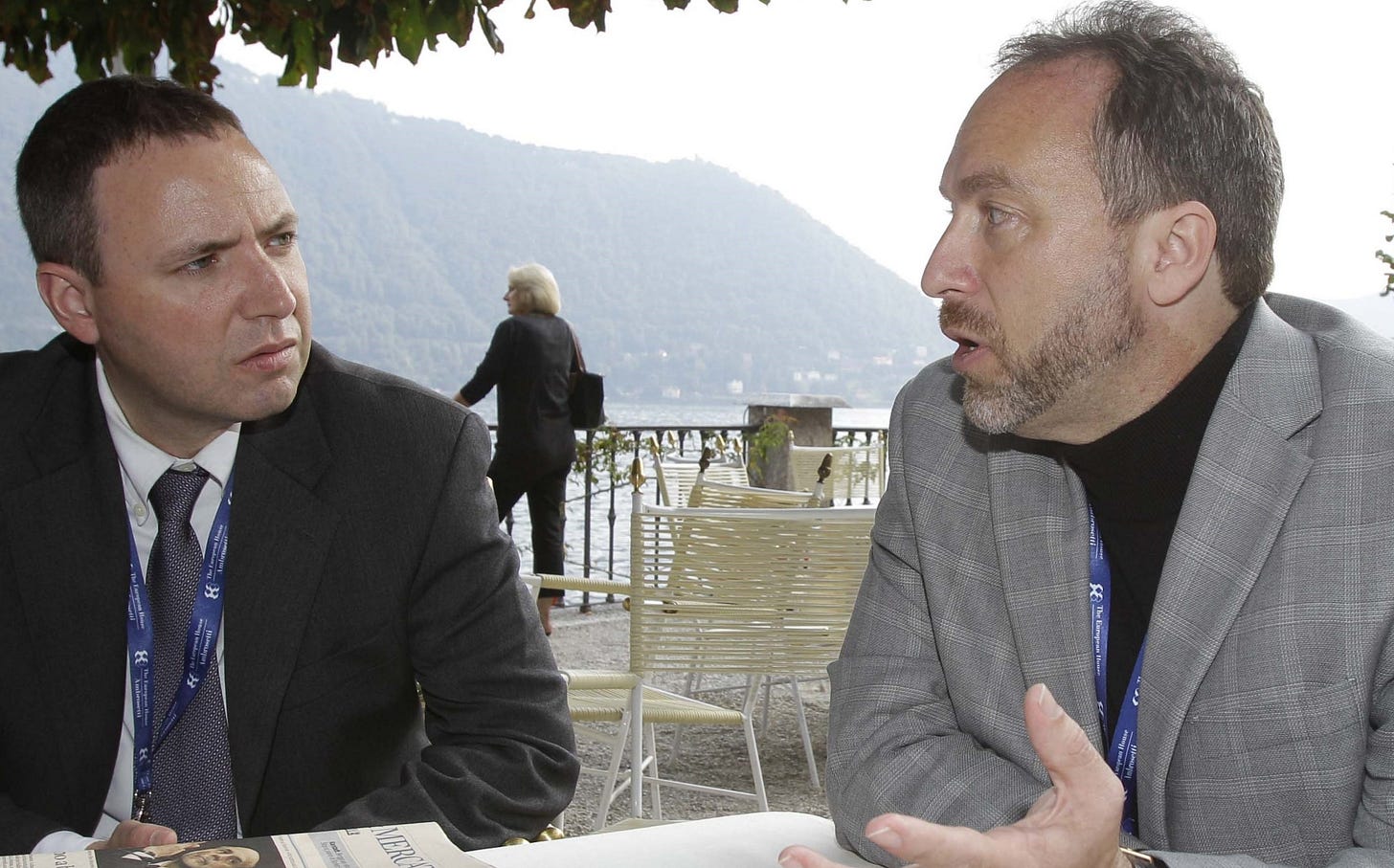A surreal encounter with Jimmy Wales
Wikipedia, wine, and the waning dream of a connected tech utopia
In the earlier years of the new century, Wikipedia seemed to confirm the most inspiring of propositions: that you could let loose our troubled species upon an online encyclopedia, allowing everyone to contribute, and the result, the sum total of the effort, would not be bullshit but so…
Keep reading with a 7-day free trial
Subscribe to Ask Questions Later to keep reading this post and get 7 days of free access to the full post archives.


